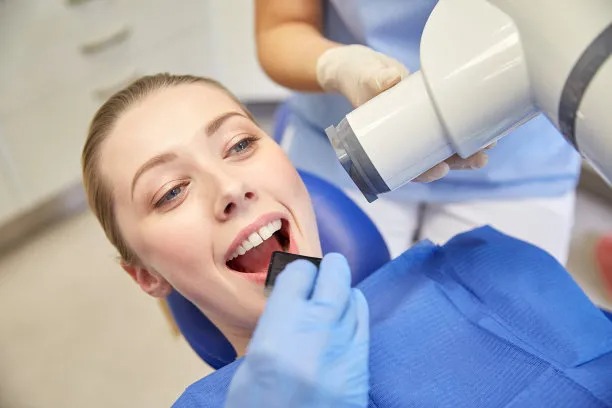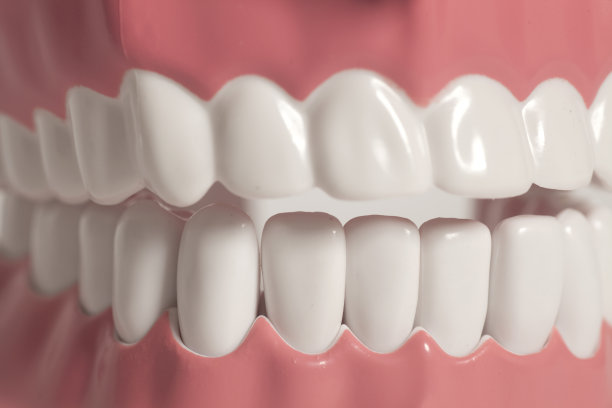Summary: After receiving dental fillings, it is crucial to follow specific precautions to ensure optimal results and maintain oral health. This article breaks down essential steps in post-filling care, explores dietary considerations, emphasizes the importance of oral hygiene, and discusses regular dental check-ups. Each of these aspects plays a vital role in not only safeguarding the integrity of the fillings but also in enhancing overall dental well-being. By adhering to these guidelines, individuals can enjoy long-lasting results from their dental work and secure their oral health effectively.
1. Immediate Care Post-Filling Procedure

After getting dental fillings, the immediate aftermath is critical for ensuring the success of the treatment. First and foremost, it is essential to avoid eating or drinking for at least two hours following the procedure. This is particularly important if the fillings were made from composite material, as they require time to set properly. Consuming food or beverages too soon can disrupt the bonding process, leading to compromised durability.
Another necessary precaution is to be cautious with the area where the filling was placed. Since the mouth may remain numb for a while after the anesthesia wears off, its easy to accidentally bite the cheek or tongue. Remind yourself to avoid touching the filled area with your tongue until sensation returns. This can prevent unnecessary injuries or discomfort.
Additionally, in the first few days post-procedure, sensitivity to hot or cold may occur. This is usually temporary, but if sensitivity persists beyond a week, it鈥檚 advisable to consult the dentist. Adjusting your eating habits during the initial healing phase can ease discomfort and ensure the filling settles correctly.
2. Dietary Considerations for Optimal Results
Your diet plays a significant role in the longevity of dental fillings. After the procedure, its crucial to avoid sticky or hard foods that can dislodge or damage the fillings. Foods such as caramel, hard candies, and even ice can exert excessive pressure on newly placed fillings, potentially leading to cracks or wear over time.
It鈥檚 also wise to limit acidic foods and beverages, as they can contribute to sensitivity and discomfort, especially in the initial post-treatment period. Citrus fruits and soft drinks should be consumed sparingly until you are completely healed from the filling procedure. Focusing on a diet rich in soft, nutritious foods can help in maintaining oral comfort.
Hydration is also important. Drinking ample water can aid in the healing process and helps wash away food particles and acids that could affect dental health. A balanced diet not only promotes recovery but contributes to overall oral health, benefiting both your fillings and teeth.
3. Importance of Maintaining Oral Hygiene
Maintaining excellent oral hygiene is paramount after receiving dental fillings. This includes brushing your teeth at least twice a day with fluoride toothpaste. Investing in a soft-bristled toothbrush can be particularly beneficial, reducing the risk of irritating the filled area. It is essential to clean around the filling thoroughly to prevent plaque build-up and potential cavities.
Flossing daily is equally important. It helps remove food debris and plaque that a toothbrush may miss, especially in the spaces between teeth where fillings often reside. Be gentle when flossing around the filled area to avoid any dislodging or irritation.
Using an antibacterial mouthwash can also be beneficial, as it helps to neutralize harmful bacteria that cause dental decay. Rinsing your mouth after meals can further safeguard your teeth and fillings. Together, these practices contribute significantly to the longevity of your dental work and ensure a healthier mouth overall.
4. Regular Dental Check-Ups Are Essential
One of the most important habits to cultivate after receiving dental fillings is scheduling regular dental check-ups. Visiting your dentist at least twice a year allows for professional monitoring of your fillings as well as the overall health of your teeth. These visits provide an opportunity for the dentist to catch any issues before they escalate into more significant problems.
During these check-ups, the dentist can assess the condition of your fillings, checking for any signs of wear or damage. If a filling is found to be compromised, it can be replaced before further decay occurs. Such preventative measures can save you from additional discomfort and expense in the future.
Moreover, your dentist can provide personalized advice and updates on the best oral hygiene practices based on your unique needs. This guidance is invaluable in maintaining not only the integrity of your fillings but also your overall oral health.
Summary:
In conclusion, ensuring optimal results after receiving dental fillings demands attention in multiple areas. From immediate post-procedure care and careful dietary choices to consistent oral hygiene practices and regular dental visits, each aspect contributes to effective maintenance of oral health. By following these essential precautions, individuals can protect their dental investments and enhance the longevity of their fillings.
This article is compiled by Vickong Dental and the content is for reference only.
Vickong Dental
Vickong Dental is a large medical group established in Hong Kong in 2008 by professors from well-known medical universities in Guangdong and Hong Kong, as well as medical doctors from key national '985' universities (including Master's supervisors and senior professors). The chain of branches brings together expert dentists with PhDs and Master's degrees from Hong Kong and Mainland China, committed to providing high-quality dental treatment.
"Vickong Dental Practices the University Motto of 'Healing and Serving Society,' with a Stable Operation for Sixteen Years. It Has Been honored with Hong Kong Enterprise Leaders's Choice,' and is a Global Trusted Implant Center for the Nobel Implant System. Recommended by Hong Kong Metro Broadcast and Guangdong Television, it Serves Customers from Over Thirty Countries and Regions, Gaining the Trust and Favor of Citizens from the Guangdong-Hong Kong-Macau Greater Bay Area and Surrounding Cities.

Thousands of customers' unanimous praise
The most recognized and highly recommended dental service by customers in the Guangdong-Hong Kong-Macau Greater Bay Area
We Ensure You Receive Detailed Care and Attention Here
Hong Kong standards, Shenzhen prices, Your Trusted English-speaking dentists

Vickong Dental Medical-Grade Instrument Disinfection Process
Vickong Dental Medical-Grade Instrument Disinfection Process

Vickong Dental Chain: A Warm and Comfortable Environment for Treatment






Appointment Hours

Q&A
Why choose Vickong Dental?
Vickong Dental practices the university motto 「Medicine to Benefit Society」, with each branch bringing together highly qualified dentists with doctoral and master’s degrees from Hong Kong and the Mainland, and has maintained seventeen years of steady operation。Recipient of 「2024 Hong Kong Enterprise Leaders Brand」, 「2025 Hong Kong Enterprise Leaders Brand」, a Nobel Biocare Global Trusted Implant Center, and a brand recommended by Metro Radio Hong Kong and Guangdong TV。
To date, we have served customers from more than thirty countries and regions,earning exceptionally high word-of-mouth recognition and trusted recommendations from residents across the Guangdong-Hong Kong-Macao Greater Bay Area and surrounding cities
We have eight major branches in Zhuhai、Shenzhen,and a consultation and service assurance center in Hong Kong,so you can book a free consultation at any time for any questions,which is very reassuring.
If I do not accept the quotation after the CT scan, will I be charged??
No! As long as the actual treatment has not started, you will not be charged any fees.
Will there be any additional charges during the treatment process?
No, there won’t be any additional charges. Before treatment begins, we will clearly explain the treatment plan and its corresponding fees. Only after the patient agrees and signs the consent form will we proceed with the dental service.
Can I pay in Hong Kong dollars?
Yes. Vickong Dental accepts payment in Hong Kong dollars. The amount will be converted based on the exchange rate of the day, and the applicable rate will be clearly communicated to you in advance.
Can I reschedule my appointment at any time?
Yes. Please contact us via **WeChat** or **WhatsApp** as early as possible, providing your original appointment time and details, along with your preferred new date and time slot for rescheduling.













